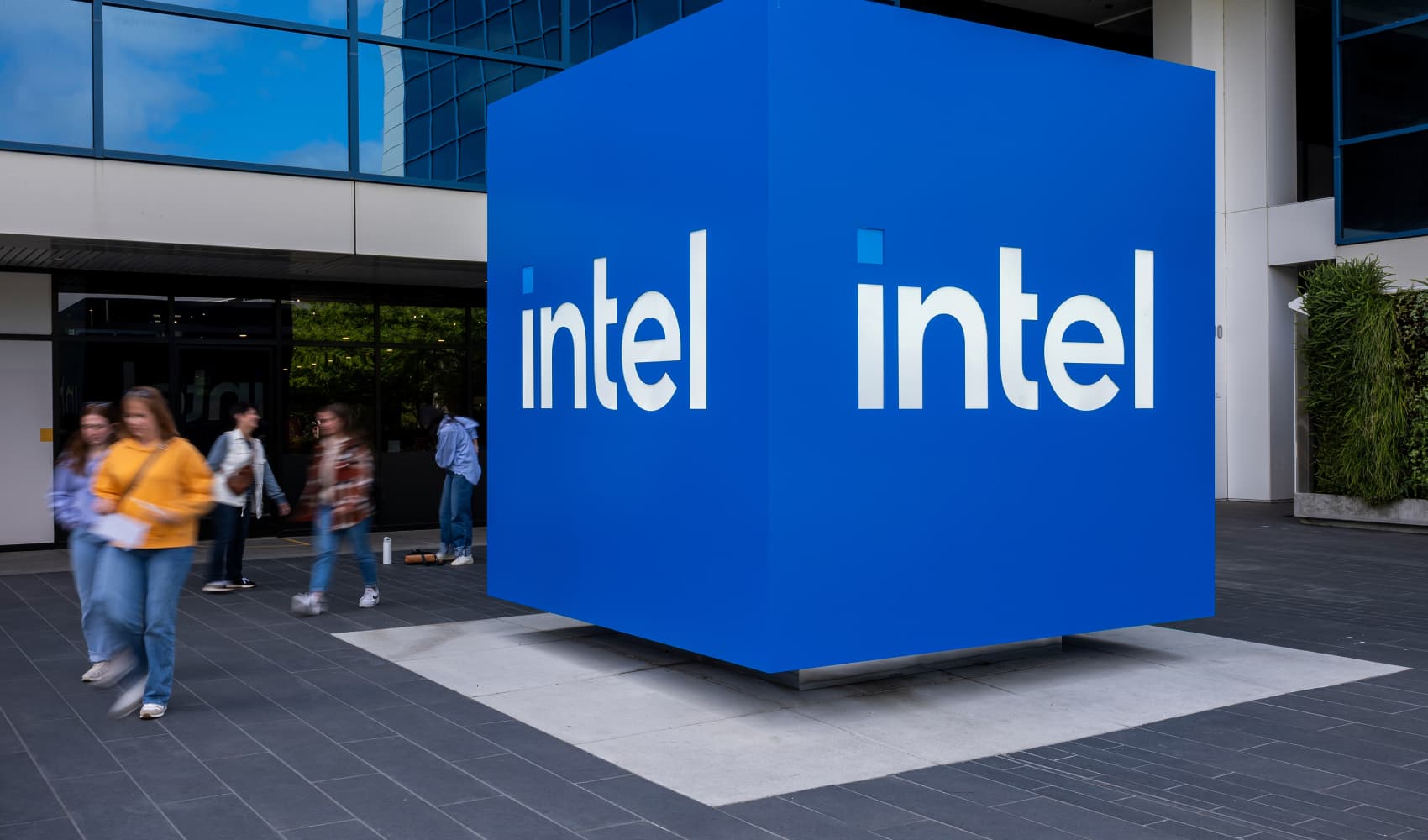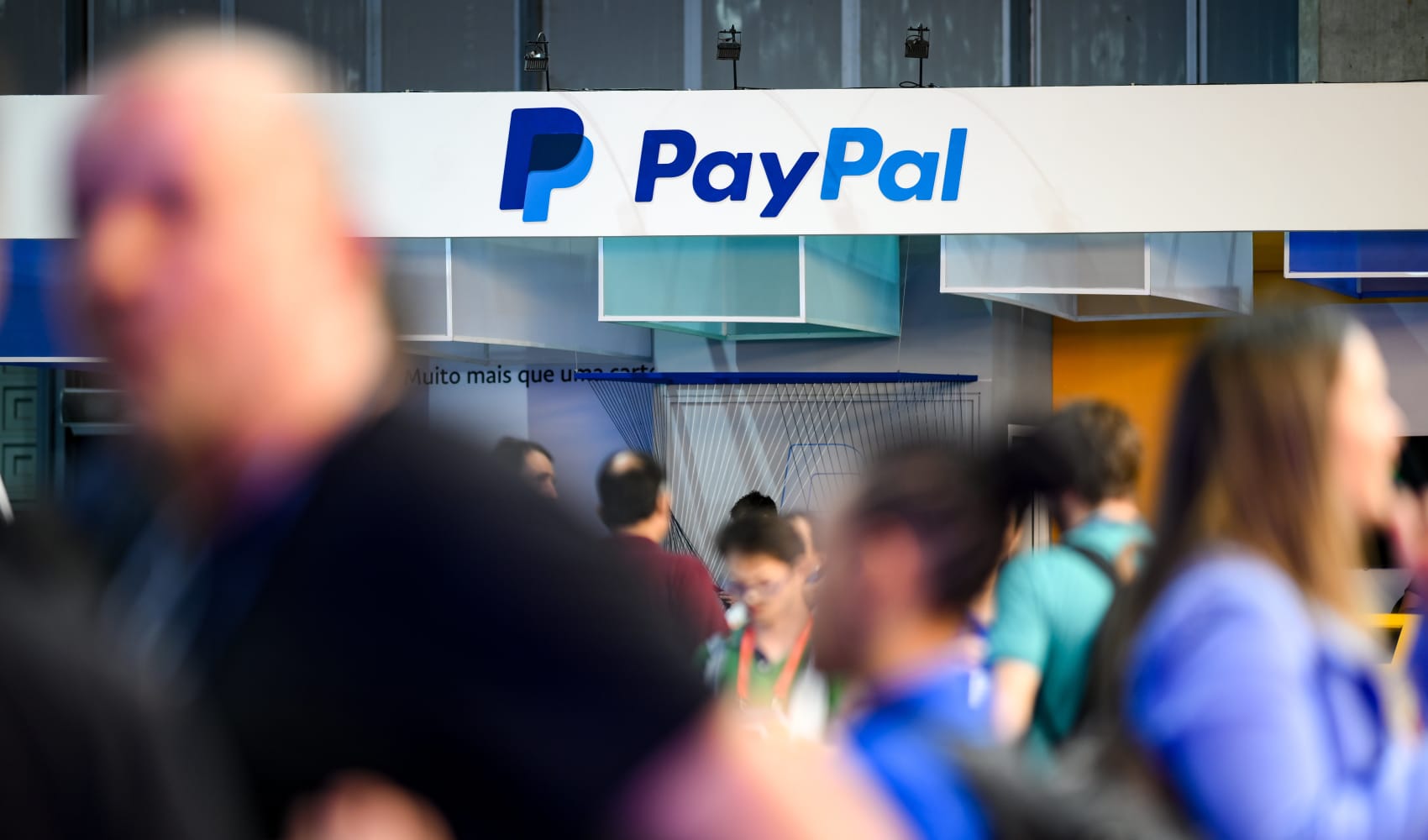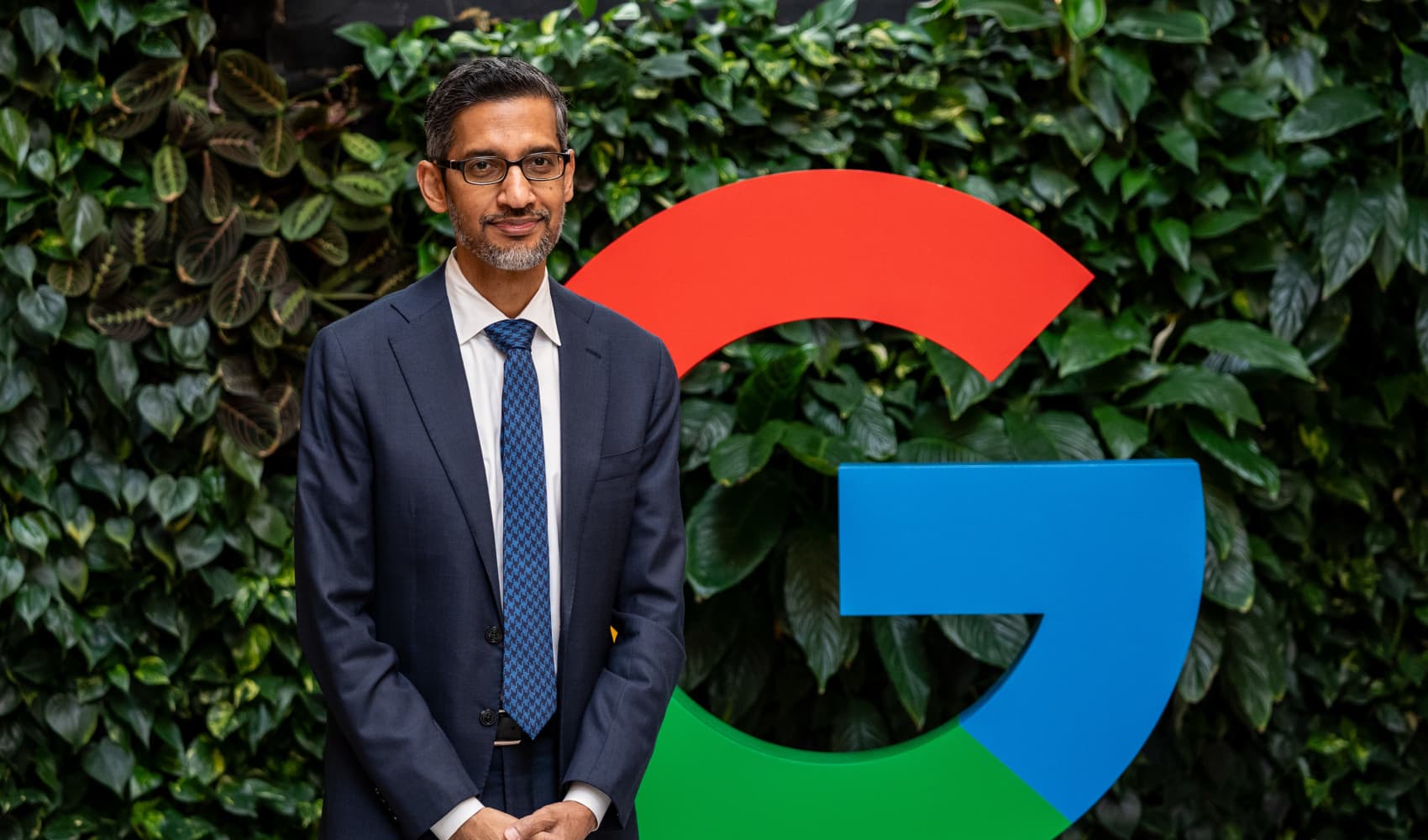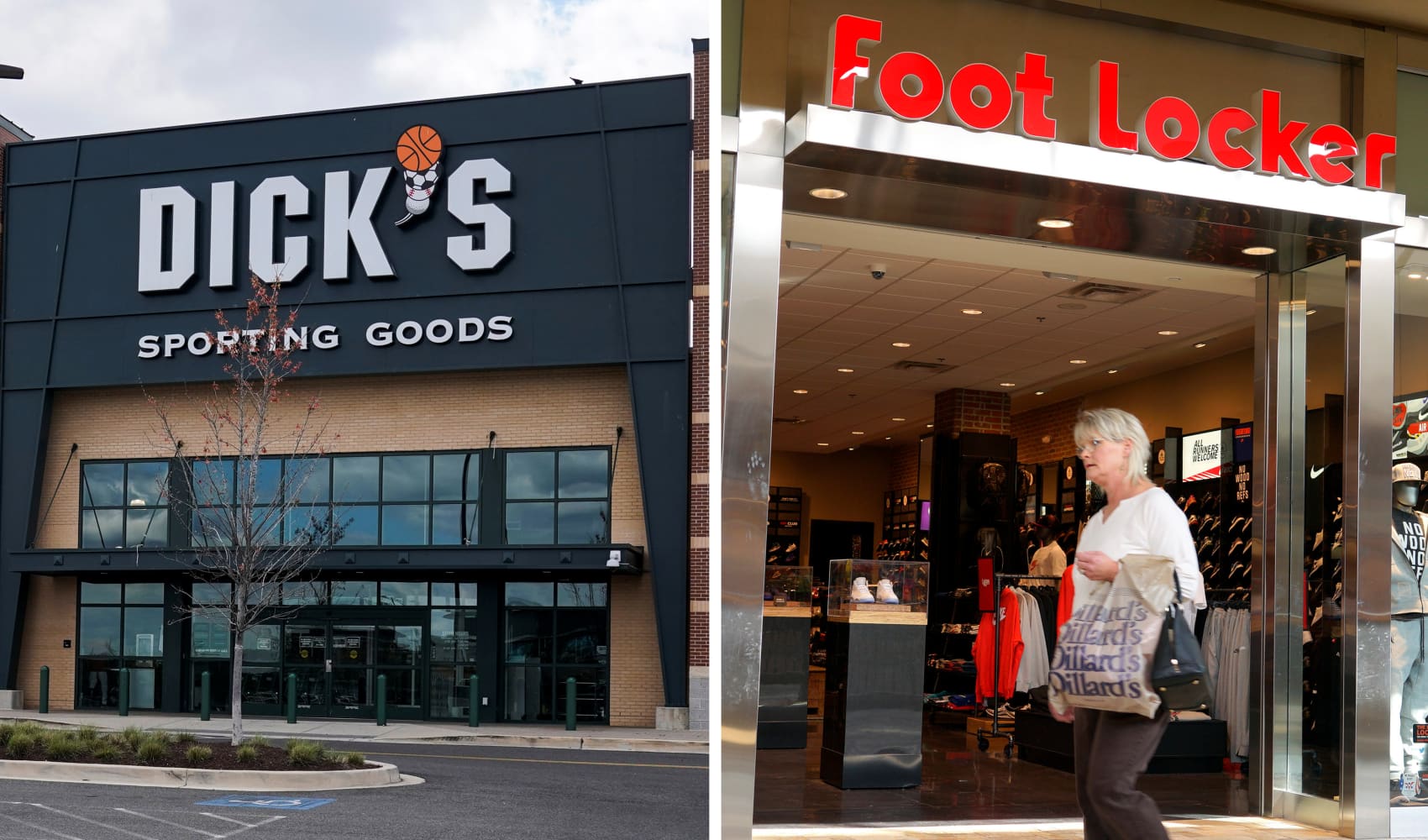Intel's Weak Guidance: Expense Cuts & What It Means!
Intel's Rollercoaster: Beats Expectations, But Expenses Get the Axe!
Introduction: A Quarter of Mixed Signals
Hold on to your hats, folks, because the world of semiconductors just got a little more interesting! Intel, the tech titan we all know and (sometimes) love, just released its first-quarter earnings report, and it's a mixed bag. They soared past expectations, exceeding both revenue and earnings per share. But there's a catch! Alongside this seemingly good news, Intel has issued weaker-than-anticipated guidance for the next quarter and announced plans for significant expense cuts. So, is this a victory lap or a sign of turbulence ahead? Let's dive deep and unravel the complexities.
Breaking Down the Earnings: What Did Intel Achieve?
First, let’s celebrate the wins! Intel’s first-quarter earnings painted a brighter picture than analysts predicted. We’re talking real numbers here, folks:
- Earnings per Share (EPS): Adjusted EPS hit 13 cents, a whopping 12 cents higher than the expected 1 cent! Talk about exceeding expectations!
- Revenue: Intel raked in $12.67 billion in revenue, surpassing the anticipated $12.3 billion. Not bad, Intel, not bad at all.
These figures indicate a potential rebound for Intel, suggesting that their strategies are, at least in some areas, bearing fruit. The question is, can this momentum be sustained?
The Disappointing Guidance: Clouds on the Horizon
Alright, let's address the elephant in the room – the disappointing guidance. While the first quarter was a cause for cautious optimism, Intel’s projections for the current quarter are less rosy. They are forecasting revenue of $11.8 billion (at the midpoint), which is lower than the analysts' average estimate of $12.82 billion. What does this mean? It signals potential challenges ahead, indicating that the semiconductor market might be facing headwinds, or that Intel's competitiveness is still a work in progress.
Expense Cuts on the Horizon: A Necessary Evil?
Here's where things get even more interesting. To navigate these challenges, Intel plans to slash operational and capital expenses in 2025. This is the first year under the leadership of CEO Lip-Bu Tan. Cutting costs is often a sign of a company trying to become more efficient and profitable, but it can also signal a lack of confidence in future growth. It's a tightrope walk, balancing financial prudence with the need for innovation and expansion.
What Types of Expenses Will Be Cut?
While specific details are scarce, expect cuts across various areas. This could include:
- Operational Expenses: Reducing administrative costs, streamlining processes, and potentially workforce reductions.
- Capital Expenditures (CapEx): Postponing or scaling back investments in new facilities, equipment, and research and development (R&D).
Lip-Bu Tan's Strategy: A New Era for Intel?
With Lip-Bu Tan at the helm, Intel is embarking on a new chapter. These expense cuts could be part of a larger strategic shift, focusing on:
- Prioritizing Core Businesses: Investing in areas where Intel has a clear competitive advantage, such as data centers and AI.
- Improving Efficiency: Streamlining operations to reduce waste and improve profitability.
- Becoming More Agile: Responding more quickly to market changes and customer demands.
The Stock Market's Reaction: A Predictable Dip?
As you might expect, the news of weaker guidance and expense cuts didn't sit well with investors. The stock price dipped in extended trading. This reaction highlights the market's sensitivity to any signs of uncertainty or potential slowdown at a company like Intel. Investors are always looking for growth, and any indication that growth might be stalling can trigger a sell-off.
The Broader Semiconductor Landscape: What's Driving These Changes?
Intel's struggles and strategic shifts aren't happening in a vacuum. The entire semiconductor industry is undergoing a period of transformation. Several factors are at play:
- Increased Competition: Companies like AMD, Nvidia, and TSMC are fiercely competing for market share.
- Supply Chain Disruptions: Global events and geopolitical tensions continue to impact supply chains.
- Changing Technology Landscape: The rise of AI, cloud computing, and edge computing is creating new demands for semiconductors.
Intel's Challenges: A Matter of Adapting or Falling Behind?
To succeed in this dynamic environment, Intel needs to adapt quickly. They need to innovate, improve their manufacturing processes, and build stronger relationships with customers. If they fail to do so, they risk falling behind their competitors and losing market share.
Manufacturing Woes: A Long-Standing Problem
One of Intel's biggest challenges has been their manufacturing. They have struggled to keep pace with the latest advancements in chipmaking technology, which has given rivals like TSMC a significant advantage. Overcoming these manufacturing hurdles is crucial for Intel's long-term success.
The Potential Upside: Can Intel Turn Things Around?
Despite the challenges, there is still reason to be optimistic about Intel's future. They have a strong brand, a vast portfolio of products, and a talented workforce. If they can execute their strategic plan effectively, they have the potential to turn things around and regain their position as a leader in the semiconductor industry.
Investing in Innovation: The Key to Future Growth
Investing in R&D is essential for Intel's future growth. They need to develop cutting-edge technologies that can compete with the best in the world. This includes areas like AI, advanced packaging, and new materials. Innovation is the lifeblood of any technology company, and Intel needs to ensure that they are at the forefront of these advancements.
The Impact on Consumers: What Does This Mean for Us?
Intel's struggles and strategic shifts can have a ripple effect on consumers. Here’s how:
- Potential Price Increases: Expense cuts and supply chain issues could lead to higher prices for computers and other electronic devices.
- Slower Innovation: If Intel reduces its R&D spending, it could slow down the pace of innovation in the semiconductor industry.
- Less Choice: If Intel loses market share, it could lead to less competition and fewer choices for consumers.
Looking Ahead: The Next Few Quarters Will Be Crucial
The next few quarters will be crucial for Intel. They need to demonstrate that they can execute their strategic plan, improve their manufacturing processes, and regain the confidence of investors. The world will be watching closely to see if they can pull it off.
The Importance of Transparency: Keeping Investors Informed
Transparency is key. Intel needs to be open and honest with investors about their challenges and progress. Building trust is essential for maintaining a healthy stock price and attracting long-term investment.
Conclusion: A Pivotal Moment for Intel
Intel's first-quarter earnings report is a reminder that the semiconductor industry is a complex and dynamic landscape. While they exceeded expectations in some areas, the disappointing guidance and plans for expense cuts highlight the challenges they face. The success of CEO Lip-Bu Tan's strategy and Intel's ability to adapt to the changing market will determine their future. It’s a pivotal moment for the company, and the stakes are high. Will they rise to the occasion or fade into the background? Only time will tell.
Frequently Asked Questions
Q1: Why is Intel cutting expenses despite beating earnings estimates?
A1: While Intel beat estimates for the first quarter, the company is issuing weaker-than-anticipated guidance for the next quarter. Expense cuts are a preemptive measure to improve profitability and efficiency in the face of potential future challenges and market uncertainty.
Q2: How will these expense cuts impact Intel's innovation and R&D?
A2: The specific impact is yet to be fully known. However, if R&D spending is significantly reduced, it could potentially slow down the pace of innovation and delay the development of new technologies. Intel will need to carefully balance cost-cutting with maintaining its competitive edge through continued innovation.
Q3: What are the main challenges facing Intel right now?
A3: Intel faces several key challenges, including intense competition from companies like AMD, Nvidia, and TSMC, ongoing supply chain disruptions, and the need to adapt to rapidly evolving technological trends such as the rise of AI and cloud computing. Overcoming manufacturing hurdles and regaining its technological lead are also crucial.
Q4: What does this mean for consumers looking to buy computers and other electronics?
A4: Potentially, consumers might see price increases if Intel's costs rise or if competition decreases. Slower innovation could also mean that new technologies take longer to reach the market. The long-term impact will depend on Intel's ability to navigate these challenges and maintain its competitiveness.
Q5: What is Lip-Bu Tan's strategy for Intel, and how is it different from the previous leadership?
A5: While specific details are still unfolding, Lip-Bu Tan's strategy appears to focus on prioritizing core businesses, improving efficiency through expense cuts, and making Intel more agile in responding to market changes. This may represent a shift towards a more streamlined and focused approach, aiming to optimize profitability and regain market share in key areas.








